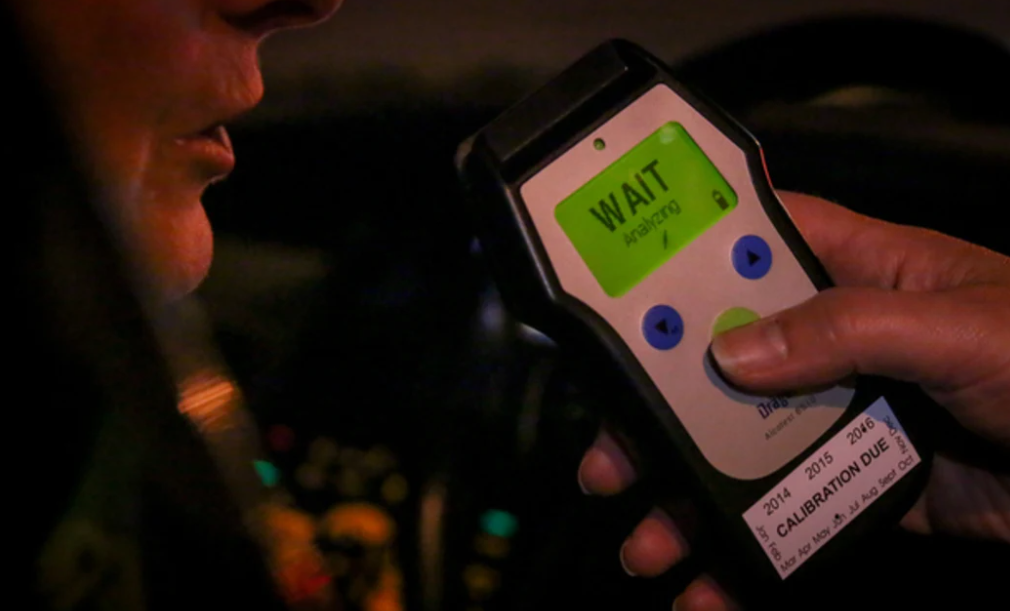Science
New Zealand Police Mandate Breath Test Training After Falsified Results

All police officers in New Zealand are now required to complete an online training module for alcohol breath testing following the discovery that over 100 staff members are under investigation for falsifying test results. This decision comes in response to revelations that approximately 30,000 alcohol breath tests were either “falsely or erroneously recorded.”
The issue surfaced after police developed a new algorithm to analyze testing data, which revealed discrepancies that the breath-testing devices themselves could not detect. A memo sent to staff, which has been reviewed by RNZ, indicated that this “recent discovery” has adversely affected public trust and confidence in the police force, particularly among partner agencies.
Mandatory Training Implementation
To address these concerns, the New Zealand Police Executive has mandated that all constabulary staff complete this training module by December 4, 2023. The module, which became available on November 28, 2023, takes approximately 15 minutes to complete and covers essential topics such as proper device operation, data download procedures, and the critical importance of breath screening for road safety.
Acting Deputy Commissioner Jill Rogers emphasized the necessity of this training, stating, “Your professional approach to breath screening saves lives and maintains public confidence in our road safety efforts.” The police force is particularly focused on restoring trust as New Zealand approaches its busy summer season.
Investigation and Impact on Trust
The ongoing investigation into the falsified tests raises significant concerns about public trust in the alcohol breath testing regime. During an interview with RNZ, Rogers acknowledged that the actions of some police staff have damaged this trust, saying, “We are committed to putting this right.”
Rogers detailed how some officers may have incorrectly recorded tests, either at the start or end of their shifts, inflating their numbers while driving in moving vehicles. This practice allowed the algorithm to detect numbers that fell “outside the normal parameters.” She noted that a higher concentration of these incidents was found among members of dedicated road policing teams.
As investigators work to uncover the motives behind the falsifications, Rogers indicated that a criminal investigation remains possible for those involved in significant discrepancies. She stated, “If we were to identify criminal offending, then that’s what we would address.”
The New Zealand Transport Agency (NZTA) has also expressed concern over the situation. A spokesperson confirmed that they were informed of the issue in September 2023, emphasizing the importance of drink-driving enforcement for road safety. “We are monitoring the issue closely and we have asked police to provide NZTA with further information as they manage the situation,” the spokesperson added.
The police had previously surpassed their target of 3.3 million tests as part of the Road Policing Investment Programme (RPIP) by approximately 900,000 tests, raising questions about the pressure to meet performance metrics that may have contributed to the falsifications.
As New Zealand’s police force navigates this troubling situation, they are committed to ensuring that legitimate practices are reinforced and that public safety remains a priority. The completion of the training module is seen as a critical step in achieving this goal and restoring faith in the police’s capabilities.
-

 World3 months ago
World3 months agoTest Your Knowledge: Take the Herald’s Afternoon Quiz Today
-

 Sports3 months ago
Sports3 months agoPM Faces Backlash from Fans During Netball Trophy Ceremony
-

 Lifestyle3 months ago
Lifestyle3 months agoDunedin Designers Win Top Award at Hokonui Fashion Event
-

 Sports3 months ago
Sports3 months agoLiam Lawson Launches New Era for Racing Bulls with Strong Start
-

 Lifestyle3 months ago
Lifestyle3 months agoDisney Fan Reveals Dress Code Tips for Park Visitors
-

 Health3 months ago
Health3 months agoWalking Faster Offers Major Health Benefits for Older Adults
-

 World4 months ago
World4 months agoCoalition Forms to Preserve Māori Wards in Hawke’s Bay
-

 Politics3 months ago
Politics3 months agoScots Rally with Humor and Music to Protest Trump’s Visit
-

 Top Stories4 months ago
Top Stories4 months agoUK and India Finalize Trade Deal to Boost Economic Ties
-

 Entertainment3 months ago
Entertainment3 months agoExperience the Excitement of ‘Chief of War’ in Oʻahu
-

 World4 months ago
World4 months agoHuntly Begins Water Pipe Flushing to Resolve Brown Water Issue
-

 Science3 months ago
Science3 months agoNew Interactive Map Reveals Wairarapa Valley’s Geological Secrets








